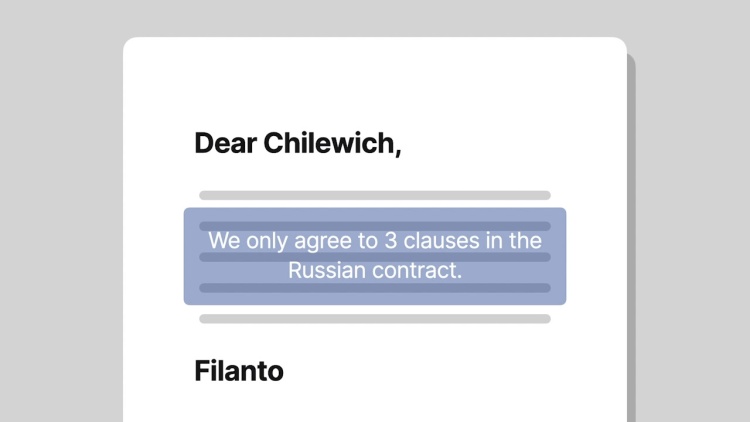Filanto, S.p.A. v. Chilewich International Corp.
United States District Court for the Southern District of New York
789 F. Supp. 1229 (1992)
- Written by Ryan McCarthy, JD
Facts
Filanto, S.p.A. (Filanto) (plaintiff), an Italian shoe manufacturer, agreed to sell a large number of boots to Chilewich International Corporation (Chilewich) (defendant), a New York export-import firm, to be sent to Moscow. Filanto and Chilewich had extensive prior dealings with each other. Prior to creating the contract with Filanto, Chilewich had entered into an agreement obligating Chilewich to send boots to a Russian company. The Russian contract included an agreement requiring disputes to be arbitrated in Moscow. The Filanto-Chilewich contract was then initiated by a memorandum agreement sent from Chilewich to Filanto regarding two shipments of boots to Russia, stating that the Russian contract’s terms would govern the contract between Chilewich and Filanto. Five months after Chilewich sent the memorandum agreement, and two months after Chilewich opened a line of credit for Filanto on the contract, Filanto signed and returned the memorandum agreement with a note stating that Filanto understood only three sections of the Russian contract to apply to the Filanto-Chilewich contract. The arbitration provision was not one of those sections. A dispute arose between the parties, and Filanto filed suit against Chilewich. After filing, however, Filanto sent a letter to Chilewich disputing Chilewich's claim that some of the boots were in poor condition, relying on a provision of the Russian contract that was not one of the three sections Filanto had accepted. Chilewich argued that the Russian contract formed part of the Filanto-Chilewich contract and required arbitration of the dispute in Moscow. Filanto moved to enjoin arbitration or to instead hold arbitration proceedings in New York.
Rule of Law
Issue
Holding and Reasoning (Brieant, C.J.)
What to do next…
Here's why 907,000 law students have relied on our case briefs:
- Written by law professors and practitioners, not other law students. 47,100 briefs, keyed to 996 casebooks. Top-notch customer support.
- The right amount of information, includes the facts, issues, rule of law, holding and reasoning, and any concurrences and dissents.
- Access in your classes, works on your mobile and tablet. Massive library of related video lessons and high quality multiple-choice questions.
- Easy to use, uniform format for every case brief. Written in plain English, not in legalese. Our briefs summarize and simplify; they don’t just repeat the court’s language.





